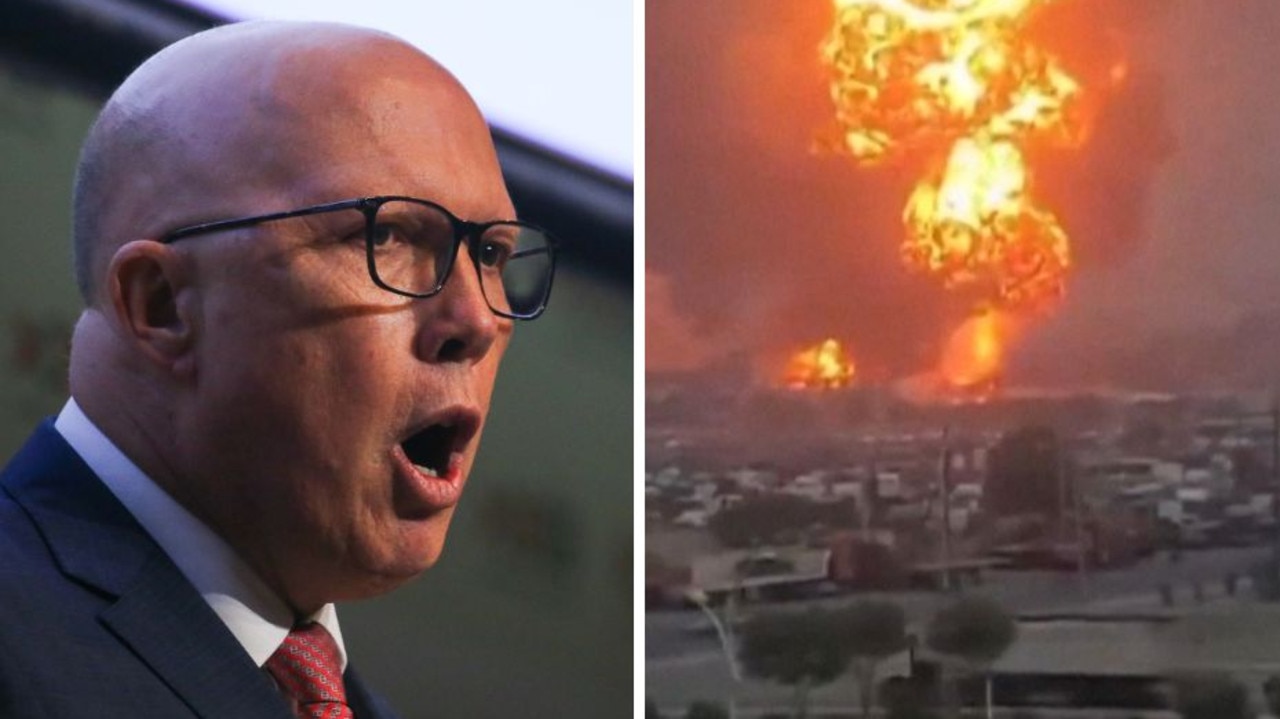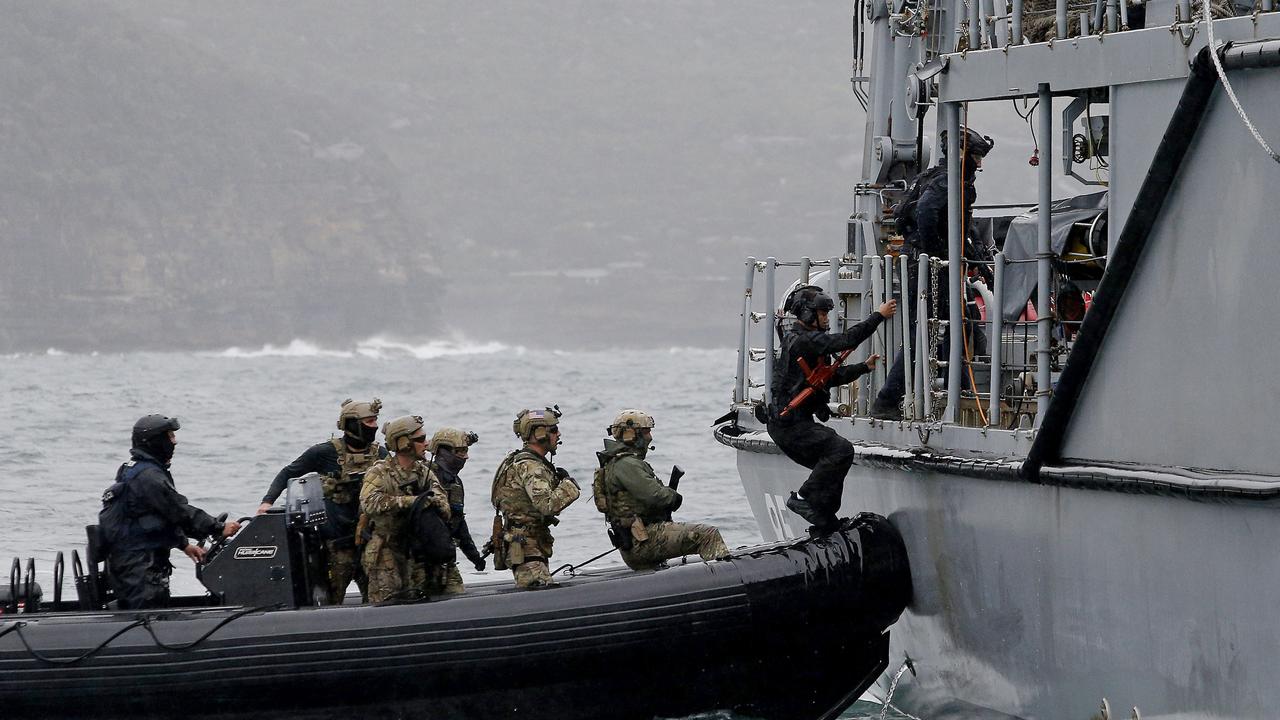‘Unthinkable’ as world marches towards World War Three
The world as we know it is about to end as global strategists raise the alarm that we’re on the brink of something catastrophic.

ANALYSIS
The world as we know it is about to end. Global strategists and think tanks are scrambling to raise the alarm. It may be World War III. It may be a perpetual, deliberate Great Financial Crisis. Whatever it is, we’re in for a shock. And we must prepare.
Former US Secretary of Defense Robert Gates has thrown a cat among the pigeons with a warning published in the international geopolitics journal Foreign Affairs.
“Great catastrophes often seem unthinkable until they happen,” he warns. “As the strategic environment deteriorates, it’s time to recognise how eminently thinkable global conflict has become.
“If war does engulf multiple theatres of Eurasia, Washington and its allies might not win.”
A march to war?
Gates is not alone in pointing to the sudden explosion of conflict – be it military, economic or diplomatic – across the globe.
Russia shocked the world with its invasion of Ukraine.
The murderous Hamas terror attack on Israel on October 7 last year – and Israel’s brutal response – up-ended what had appeared to be a slow crawl towards peace.

Attacks by Iranian puppets across the Middle East with surprisingly effective – but cheap and simple – drones have rattled confidence in the West’s hi-tech (limited and ultra-expensive) arsenal.
North Korea has abruptly ended peace talks with the South while ramping up test firings of its vast new suite of missiles – some of which can carry nuclear warheads to the United States.
And China continues to coerce and threaten India, Japan, Taiwan, the Philippines, Malaysia and Vietnam at just one notch beneath open conflict.
And among it all, the fragile web of trade that sustains the global economy – especially the supply of silicon chips and rare but crucial minerals – has begun to fragment.
“We are at the dawn of a new era,” Dutch Admiral Rob Bauer said during a January NATO conference, “moving from a post-war world to a pre-war world”.
So, are we headed for World War III?
“The answer is not certain,” says Professor Andrew Dorman of British strategic think-tank Chatham House. “On the one hand, the sheer cost of war and the risks of inevitable destruction for both sides appear to be getting higher … (On the other), the likes of North Korea and Iran cannot be trusted to act rationally.”
Those who forget their history …
“If many … don’t realise how close the world is to being ravaged by fierce, interlocking conflicts, perhaps that’s because they’ve forgotten how the last global war came about,” notes Gates.
Nazi Germany, Fascist Italy and Imperial Japan only formed their axis of convenience once the rest of the world began to push back against their regional conflicts.
They had little in common. Each regime was autocratic. Each used coercion and violence to get what it wanted. Each wanted a prominent place on the world stage.
“Whatever their specific — and sometimes conflicting — aims, the fascist powers had a more fundamental similarity of purpose,” Gates adds. “All were seeking a dramatically transformed global order, in which “have not” powers carved out vast empires through brutal tactics — and in which brutal regimes surpassed the decadent democracies they despised.”
In the 1930s, the global economy was well on the road towards interdependence. This meant conflict in one region “exacerbated instability in another”, Gates adds.

“By humiliating the League of Nations and showing that aggression could pay, Italy’s assault on Ethiopia in 1935 paved the way for Hitler’s remilitarisation of the Rhineland in 1936. Germany then paid it forward in 1940 by crushing France, putting the United Kingdom on the brink, and creating a golden opportunity for Japanese expansion into Southeast Asia.”
… are condemned to repeat it
The United Nations has been humiliated by Palestine’s terror attacks, and Israel’s military occupation of the West Bank and invasion of Gaza. Then there’s China riding roughshod over international law with its occupation of islands in the South China Sea.
Now Russia appears on the brink of showing aggression can pay, with the US moving to abandon supporting Ukraine in its fight for survival.
“The tectonic plates of power are shifting,” Admiral Bauer warns. “And as a result: We face the most dangerous world in decades.”
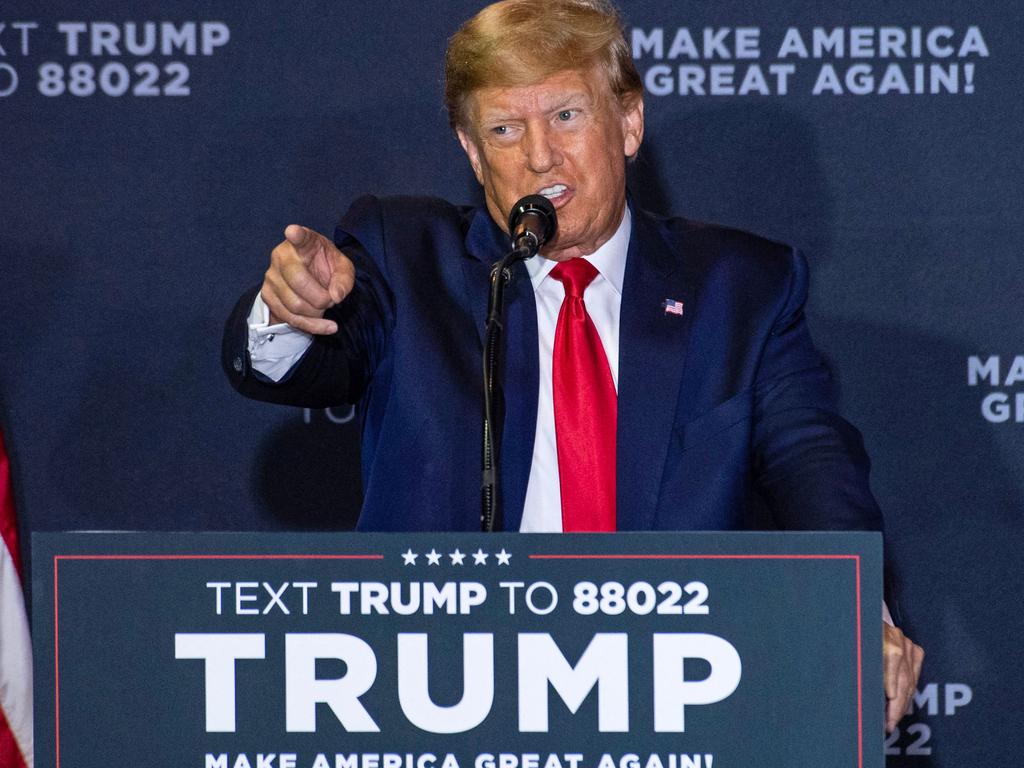
This tangle of intense, interrelated struggles would “overwhelm the rules-based (and US imposed) international order that has maintained an unprecedented – but uneasy – period of relative peace since 1945.
“We also face three perilous regional challenges and autocratic powers who are growing dangerously close to each other, also unified mostly by their determination to blow up the status quo,” says Atlantic Council President Frederick Kempe.
“China wants to replace the United States as the leading global power and push it out of the western Pacific; meanwhile, Russia wants to retake territory and influence lost with Soviet collapse … In the Middle East, Iran and its proxies are bent on the annihilation of Israel and are struggling for regional dominance.”
And Russia, China, North Korea and Iran have set aside their differences – for now – to link their economies and exchange technologies, training, and weapons in a bid to confront their common enemy.
Global warning
“With wars in eastern Europe and the Middle East already raging, and ties between revisionist states becoming more pronounced, all it would take is a clash in the contested western Pacific to bring about another awful scenario,” Gates warns.
The US, Britain, France, Russia, China, Israel, Pakistan, India and North Korea each have nuclear arsenals. Iran may be on the brink.
And the consequences of a nuclear conflict are unthinkable.
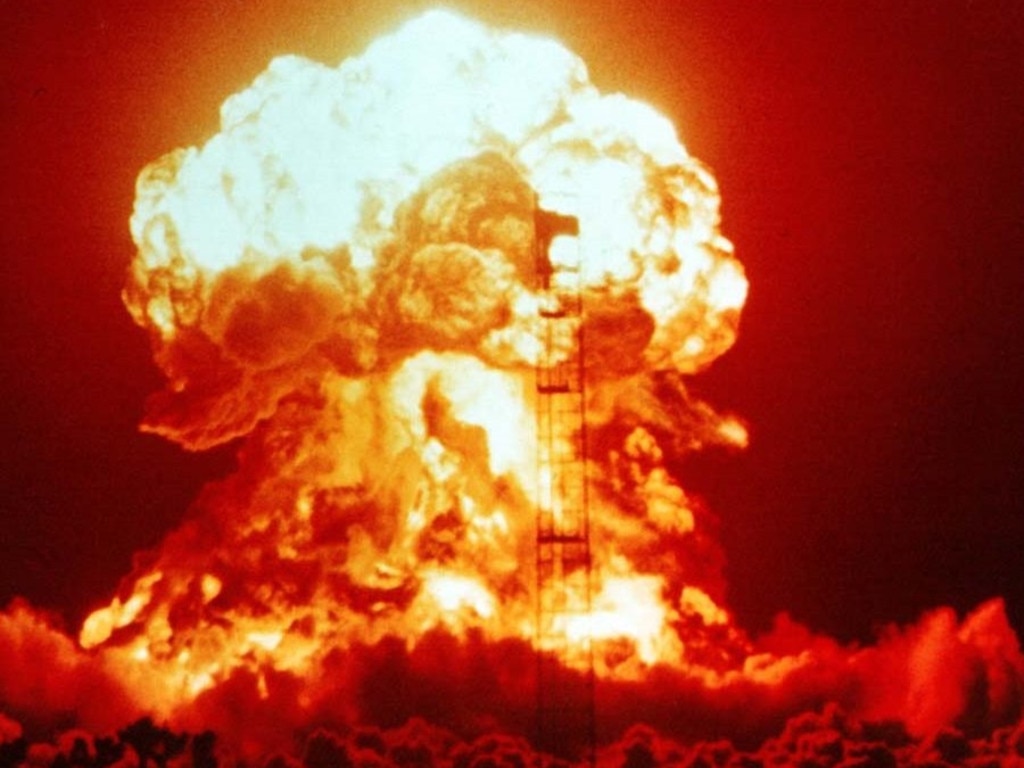
“Thinking through the nightmare scenario is still worthwhile since the world could be as little as one mishandled crisis away from pervasive Eurasian conflict — and because the United States is so unprepared for this eventuality,” warns Gates.
Japan’s attack on Pearl Harbor woke a sleeping giant. Washington quickly became an “arsenal for democracy,” sweeping aside Rome, Berlin and Tokyo.
‘Infantry wins battles, logistics wins wars’
“The harsh reality is that the defence industrial base that won World War II and then the Cold War no longer exists,” says Gates. “Shortages and bottlenecks are pervasive … Many allies have even weaker defence industrial bases.”
And no modern product – from processed food to F-35s – doesn’t rely on components and materials sourced from half a world away.
“(Conflict) would wrench global commerce in ways that make the dislocations provoked by the wars in Ukraine and Gaza look trivial,” says Gates.
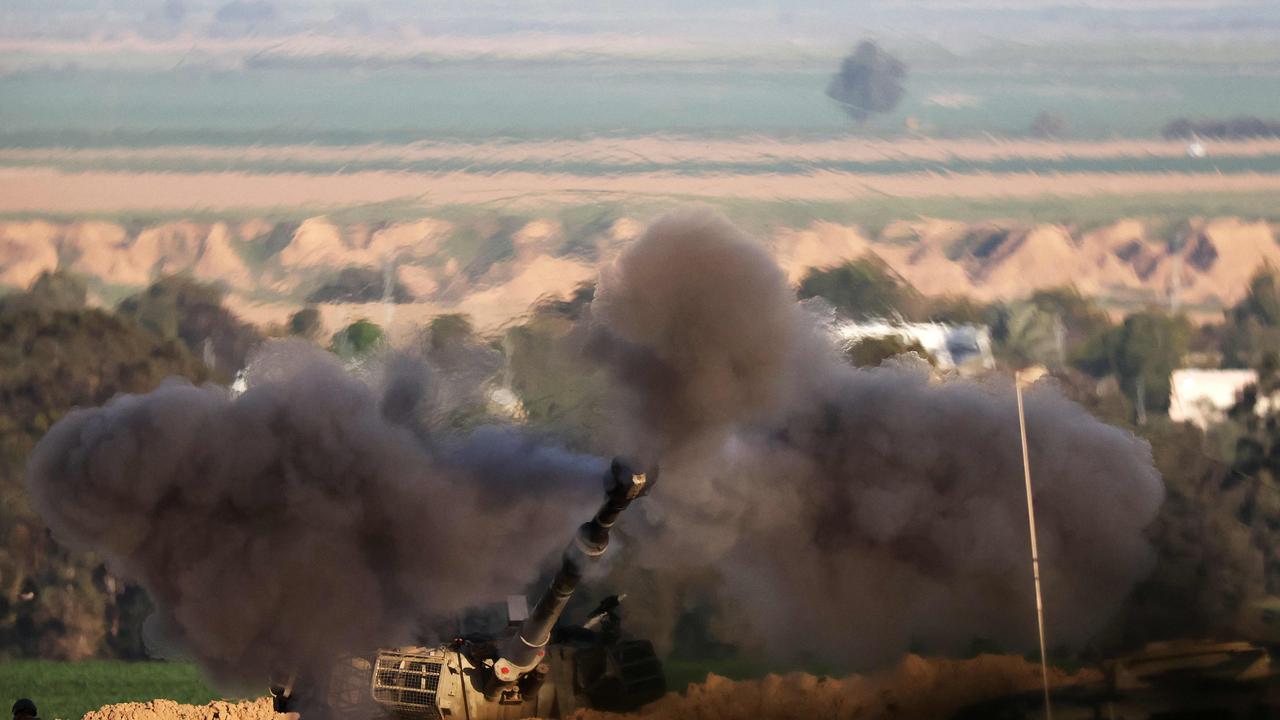
The economic shock of even limited – but widespread – regional conflicts has Admiral Bauer worried.
“We need more societal resilience. More energy independence, resilient infrastructure,” he told the NATO gathering.
“We need public and private actors to change their mindset from an era in which everything was plannable, foreseeable, controllable, focused on efficiency … to an era in which anything can happen at any time … An era in which we need to expect the unexpected”.
Analysts say China will have sufficient strength to dismiss US deterrence (in conventional weapons) in the Western Pacific and Southeast Asia by the second half of this decade.
More Coverage
But most Western defence build-up programs won’t begin to deliver until the 2030s. In the case of Australia’s dream to build a nuclear-powered submarine fleet, that won’t likely be realised before the late 2050s – if everything goes perfectly to plan.
“If this new’ axis of evil’ framing is correct, then the ongoing promise of dangers today but new equipment tomorrow will leave (us) vulnerable,” warns Chatham House’s Professor Dorman.
Jamie Seidel is a freelance writer | @JamieSeidel




